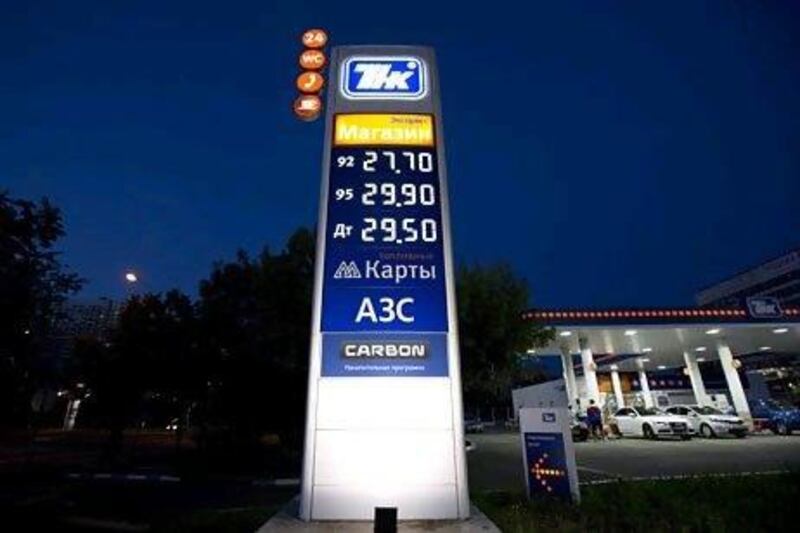BP is in advanced discussions with the Russian state-controlled oil company Rosneft over the sale of the British company's stake in the troublesome TNK joint venture.
Speculation over the US$28 billion (Dh102.84bn) deal had been mounting since media reports claimed that BP's board had recommended a sale of the Russian asset.
"BP confirms it is in advanced discussions with Rosneft regarding the sale of its 50 per cent interest in TNK-BP. No agreement has yet been reached," the company said in a statement released to the London Stock Exchange yesterday.
Vladimir Putin, the Russian president, also endorsed the deal. Speaking at a meeting with the Rosneft chief executive Igor Sechin, the president called the takeover a good deal at a good price. In a statement, Rosneft said it would pay US$28bn.
BP's board gave management its "strong support" to sell BP's stake in the joint venture to Rosneft in a deal involving both cash and shares, the Financial Times reported on Sunday, citing a source familiar with the matter.
The source said the British oil major would receive between $11bn and $13bn, as well a 19 per cent stake in Rosneft, worth about $14bn at current market capitalisation, said the source.
Rosneft, currently Russia's third largest oil company, is likely to buy up the entire joint venture. It has already reached a preliminary agreement with Alfa-Access-Renova (AAR) - the consortium holding the remaining 50 per cent in TNK-BP - to acquire half of its stake.
Should it succeed, Rosneft would become the world's largest publicly traded oil company, producing 4.5 million barrels per day (bpd) of crude and eclipsing the American oil major ExxonMobil.
In 2009, BP-TNK produced about 1.7 million bpd of oil equivalent from its fields in Siberia and the Urals.
While highly lucrative, the Russian joint venture has been a repeated cause for concern for BP. Frequent stand-offs with AAR, led by a group of Russian billionaires, has been a strain on the company's share price. In 2008, Bob Dudley, then the chief executive of TNK-BP and now BP's chief executive, left Russia after what BP described as a campaign of harassment.
Last year, the consortium thwarted an attempt by the British company to broker a $16bn share swap with Rosneft. In July this year, BP finally announced it was pursuing a sale of its share in the joint venture.
There are concerns whether a new ownership structure will end BP's troubles in Russia. Mr Sechin is a close associate of Mr Putin, and the government has a strong hold over the oil producer, prompting speculation that BP will suffer from inadequate corporate governance at the new entity.
Russia is not the only country where BP has found the going tough. Earlier this year, it emerged that the company has not been included in a preliminary list of companies under consideration for a share in Abu Dhabi's future onshore crude production.
BP is part of the Abu Dhabi Company for Onshore Oil Exploration (Adco) consortium. The concession of Adco, the onshore producer majority owned by the emirate, expires in 2014.





